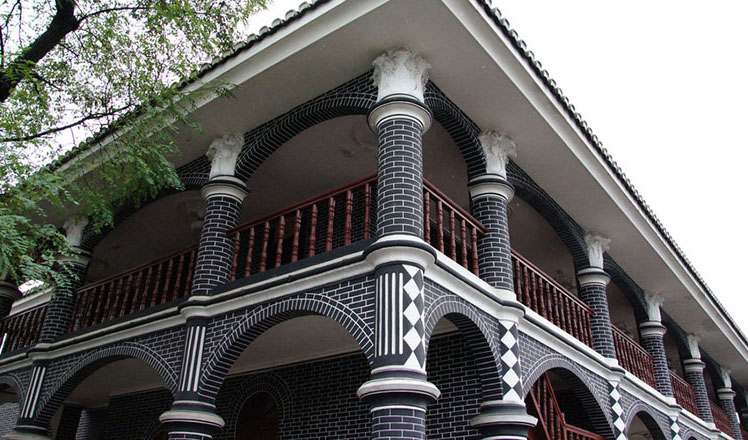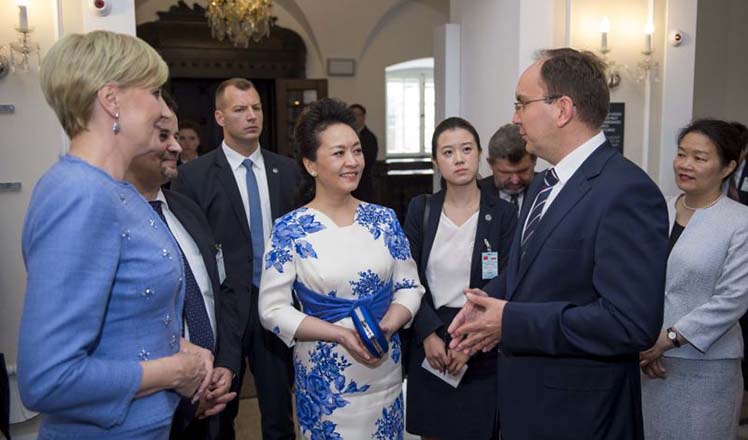2020 health plan to ease burden on people in poverty
Updated: 2016-06-22 07:09
By Wang Xiaodong(China Daily)
|
|||||||||
All Chinese living below the poverty line in rural areas will have access to basic medical care and other health services "close to" the national average by 2020, according to a guideline released by 15 central government departments on Tuesday.
The government will mobilize various social resources and take more precise measures to support the development of health and medical care services in poor areas, the guideline said.
The health poverty alleviation project is part of a national strategy to ensure that all people living below the poverty line in China climb out by 2020, the guideline said.
Of the 55.7 million people living in poverty in rural China as of 2015, about 44 percent were impoverished because of expenses related to health, Hong Tianyun, deputy director of the State Council Leading Group Office of Poverty Alleviation and Development, said at a news conference on Tuesday.
The current poverty line in China is 2,800 yuan ($425) per person a year.
To tackle health-related poverty with precision, several ministries, including the National Health and Family Planning Commission and the Ministry of Human Resources and Social Security, have organized a nationwide investigation into the major health conditions responsible for the poverty of the rural population, said Wang Pei'an, vice-minister of the commission.
The investigation, to be conducted by grassroots health workers, will cover every household that fell into poverty because of health expenses, and a record will be created for each in a database after the investigation is completed in July, he said.
A report will be made based on the investigation and database to help authorities provide assistance to different groups according to need, Wang said.
To help impoverished regions gain access to more health resources, the government will increase subsidies for insurance for the rural poor and encourage the private sector and nongovernmental organizations to invest in poor regions, Wang said.
Medical resources such as hospitals and doctors are seriously lacking in the 832 counties with the largest number of poor people, a major gap between supply and demand, Wang said.
Despite China's universal coverage for basic health insurance, a person with low income can easily go bankrupt because of out-of-pocket expenses.
For example, a person may be reimbursed for 80 percent of a medical procedure, but the remaining 20 percent can gobble up a year's earnings or more.
Nearly 30 million Chinese are in poverty because of this sort of basic math, according to the Chinese Red Cross Foundation.
The foundation has partnered with an IT company to launch an online crowdfunding website to give poor patients direct access to donations for lifesaving medical care, the foundation said on Tuesday.
Shan Juan contributed to this story.
- China pledges universal health service for poverty-stricken population
- Safety checks ordered over playground health fears
- Rural mother and child health care needs more attention: official
- Health investigation to address challenges to China's poorest
- Top health authority: Immunotherapy to be conducted only for research purposes
- British MPs pay tribute to murdered MP Jo Cox
- DPRK deploys Musudan ballistic missile in east coast
- American singer wants to perform concert in Cuba: media
- Rio government denounced for extravagant spending during crisis
- Planned Obama, Dalai Lama meeting protested
- Gravitational waves detected for second time: scientists

 Croatia rally to stun Spain 2-1 to top Euro 2016 Group D
Croatia rally to stun Spain 2-1 to top Euro 2016 Group D
 Top 10 overseas M&As of Chinese auto companies
Top 10 overseas M&As of Chinese auto companies
 Now and then: Famous venues of the Long March
Now and then: Famous venues of the Long March
 Things you may not know about Summer Solstice
Things you may not know about Summer Solstice
 First lady visits Fryderyk Chopin Museum in Poland
First lady visits Fryderyk Chopin Museum in Poland
 Chinese factories score a goal with Euro 2016
Chinese factories score a goal with Euro 2016
 Euro rookie Welsh makes history to enter knock-out stage
Euro rookie Welsh makes history to enter knock-out stage
 Cavs stun Warriors in Game 7 thriller, LeBron MVP
Cavs stun Warriors in Game 7 thriller, LeBron MVP
Most Viewed
Editor's Picks

|

|

|

|

|

|
Today's Top News
Abe's blame game reveals his policies failing to get results
Ending wildlife trafficking must be policy priority in Asia
Effects of supply-side reform take time to be seen
Chinese State Councilor Yang Jiechi to meet Kerry
Chinese stocks surge on back of MSCI rumors
Liang avoids jail in shooting death
China's finance minister addresses ratings downgrade
Duke alumni visit Chinese Embassy
US Weekly

|

|









